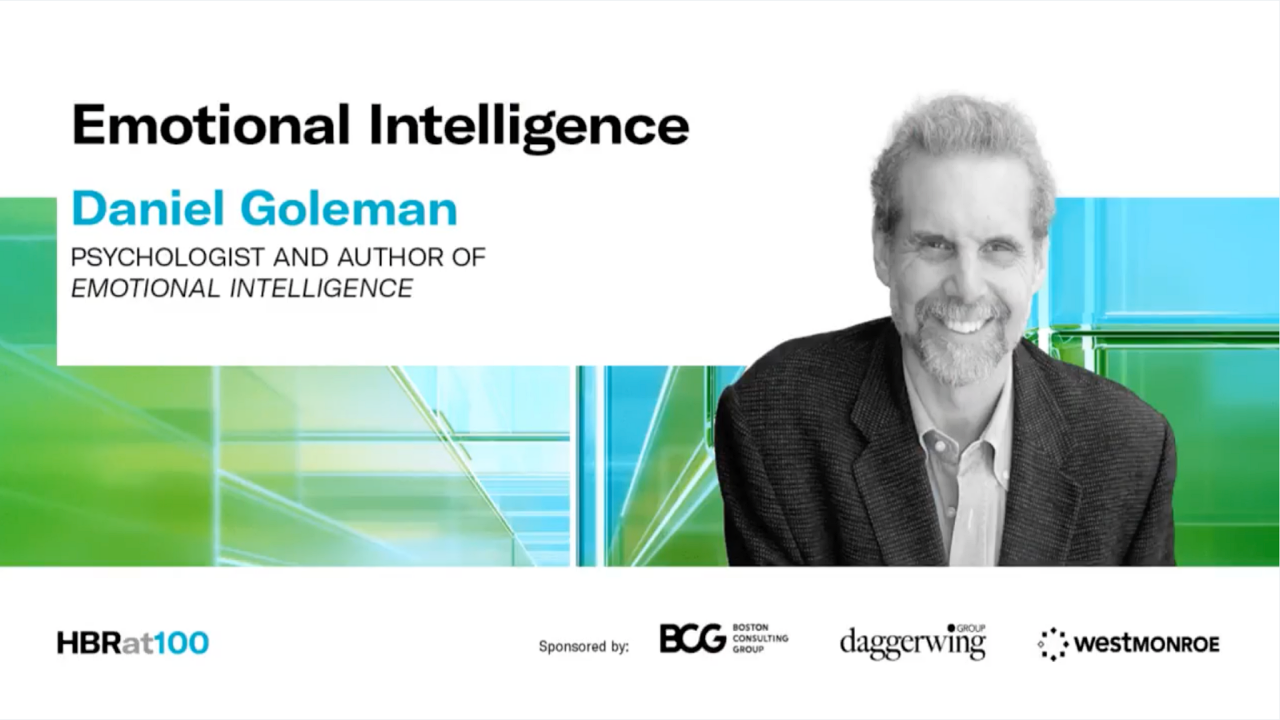Eric Miller
new mindset blog
CATAGORIES
HOW TO IMPROVE JOB SATISFACTION, ORGANIZATIONAL COMMITMENT, AND REDUCE TURNOVERThe Rise of Emotional Intelligence and Why Soft Skills are Essential for Building Resilient and Adaptable OrganizationsInsights from Renowned Psychologist Daniel Goleman and the Importance of Developing Emotional Intelligence in Today's Workplace in a Lecture with Harvard Business Review on March 6, 2023 Soft skills are increasingly becoming essential for organizations to develop their employees. The recent conference hosted my Harvard Business Review highlighted renowned psychologist Daniel Goleman on the importance of soft skills in the workforce and how emotional intelligence, a key soft skill, has become part of the DNA of companies worldwide. Goleman's talk emphasized the need for businesses to focus on developing soft skills to build resilience, adaptability, and positive mindsets in their employees.  Soft skills are not new to the workforce. The concept of social intelligence was first introduced in the 1920s by psychologist Edwin Thorndike, who highlighted the importance of emotional intelligence in the workplace. Since then, various models of emotional intelligence have emerged, with the core elements of self-awareness, self-management, social awareness, and relationship management. The term "emotional intelligence" was coined in a 1990 article by Peter Solovay and his graduate student John Mayer. Emotional intelligence is the ability to be intelligent about our emotions, to understand how our feelings shape our thoughts, perceptions, and impulse to act. It includes being self-aware, practicing self-management, and maintaining a positive mindset. Self-management is critical to developing soft skills. Leaders need to be agile and adaptable in the face of change, and they need to have the resilience to stay focused on their goals. Maintaining a positive mindset is also essential, as it helps leaders to see themselves and others as able to improve, making them effective coaches and mentors. The second domain of emotional intelligence is social awareness, which is the core of empathy. Empathy is crucial in leadership as it allows leaders to tune into what is going on with other people. The three types of empathy include cognitive empathy, emotional empathy, and empathic concern. Empathic concern is the most overlooked type of empathy, where you not only know how the person thinks and feels, but you also care about them. Empathy makes leaders more effective in guiding, inspiring, and influencing their team members. The most high-performing teams have norms for emotional intelligence at the group level, where all these skills work together. This is essential when managing relationships and conflicts in the workplace. It's no surprise that soft skills are now becoming more important than hard skills. Organizations are increasingly focusing on hiring employees with high levels of soft skills, which are up by 30%, while those with hard skills are down by 40%.  The difference between threshold competence and distinguishing competence is also essential to note. Threshold competence is what everyone needs, while distinguishing competence is what sets employees apart. The higher up you go in an organization, the more important soft skills become. Emotional intelligence has become part of the DNA of companies worldwide, even if they don't refer to it explicitly. Amazon, for example, refers to it as customer obsession, while other companies call it empathetic listening. Developing soft skills is essential for businesses to build a positive work culture and improve job satisfaction, organizational commitment, and reduce turnover rates. Research shows that higher emotional intelligence in employees and their leaders predicts better job satisfaction, higher organizational commitment, and lower turnover rates. With the constant change in the workplace due to technology, developing soft skills has never been more critical. To put a nice bow on it … organizations need to invest in developing their employees' soft skills to build resilience, adaptability, and positive mindsets. Emotional intelligence, a crucial soft skill, can help leaders manage their emotions and those of others, making them effective coaches, mentors, and team players. As the demand for soft skills continues to rise, organizations need to prioritize developing emotional intelligence in their employees to create a more productive, positive, and innovative workplace culture. DO YOU KNOW YOUR TOP QUALITIES? Imagine possessing the key traits that consistently drive you toward your desired success. It is often the mastery of soft skills - how we connect and interact with others - that determines the trajectory of our careers and personal lives. But why are these so-called 'soft' skills often the toughest to grasp? It all comes down to our relational dynamics and how we react under pressure. Are you aware of your distinct strengths that shine when you are in your zone of genius? In a brief, focused 15-minute conversation, we'll uncover the top qualities that empower you to excel in ways that are uniquely yours and consistently so. Why wait? Make your move towards understanding your unique genius. Book a 15-minute call today.
0 Comments
Your comment will be posted after it is approved.
Leave a Reply. |
CONTACT ERIC MILLER
© COPYRIGHT 2018-2024 Owner's Ally, New Mindset Academy, Eric Miller-EMC
ALL RIGHTS RESERVED
TERMS OF USE
PRIVACY POLICY
© COPYRIGHT 2018-2024 Owner's Ally, New Mindset Academy, Eric Miller-EMC
ALL RIGHTS RESERVED
TERMS OF USE
PRIVACY POLICY

